
By The Numbers
How Think Blue is Improving water quality
Think Blue San Diego takes action year-round to help stop pollution before it starts and keep the City of San Diego in compliance with state and federal water-quality regulations. Those actions include street sweeping, business and residential inspections, storm drain cleanings and water-quality monitoring, among other things. The performance of those activities results in the collection of data that the City uses to make data-driven decisions to improve water quality and prevent pollution. Check out our interactive map below to Analyze the data for the 2023 Fiscal Year and find out what’s happening in your neighborhood.
Click on icons below for more information on our actions and their results.
Rebates
The City offers rebates for installation of rain barrels, downspout redirects, rain gutters and turf replacements to encourage San Diegans to conserve and reuse rainwater. Check out data on the number of water conservation devices installed last year.
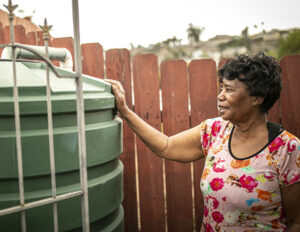
Street Sweeping
Regular sweeping of streets, parking lots and medians helps reduce the amount of sediment, trash and other pollutants that enter the storm drain. Check out the miles of streets swept and the amount of trash removed.
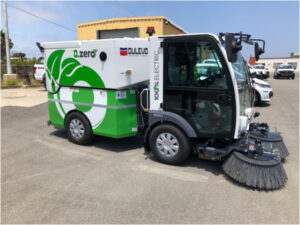
Water Quality Response
What gets measured gets managed so regular water-quality monitoring at storm drain outfalls helps Think Blue track pollution levels and take action if necessary. Check out data on pollutants during wet and dry seasons.
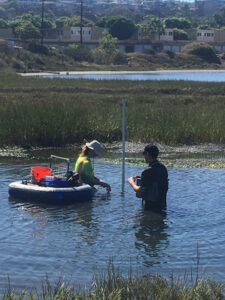
Storm Drain Cleaning
Over 46,000 storm drain structures in the City are inspected and cleaned year-round. Check out the results and how much debris has been removed.
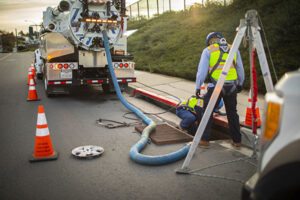
Education and Outreach
Think Blue partners with several nonprofits to host multiple cleanup events each year and help educate San Diegans on the importance of stormwater pollution prevention. Check out data on how much trash collected from cleanups.

Structural BMP Inspections
Inspections make sure that structural best management practices are adequately maintained to treat stormwater entering storm drains. Check out data on how many were inspected and maintained during the year.
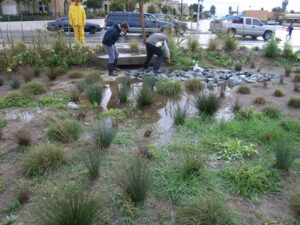
Illicit Discharge Detection
The City inspects any reports from the public of potential stormwater pollution. Check out data on inspections, notices of violation and enforcement actions.
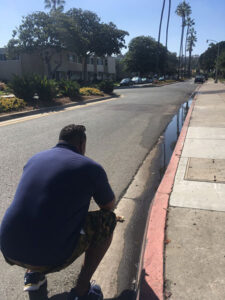
Municipal Facility and Residential Inspections
Residences and municipal facilities are subject to inspection as potential sources of pollutants entering the storm drain system. Check out data on inspections, notices of violation and enforcement actions.
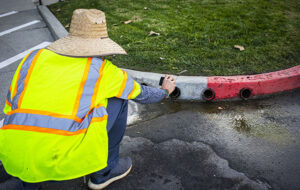
Commercial/Industrial Inspections
Businesses are regularly inspected to determine if the business could be a potential source of pollutants entering the storm drain system. Check out data on inspections, notices of violation and enforcement actions.
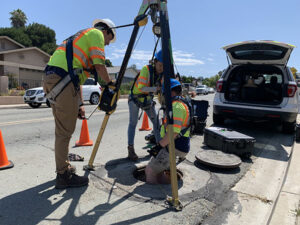
More information is in the City of San Diego Jurisdictional Runoff Management Plan Fiscal Year 2021 and 2022 Annual Reports that were submitted to the San Diego Regional Water Quality Control Board. Those reports and other information on watershed Water Quality Improvement Plans prepared by the City can be found on the websites for Project Clean Water and the Stormwater Department. Data presented here is for visualizing annual report data only for Fiscal Year 2023. Data should not be used for characterization purposes.